I was there when the AIDS crisis hit – this is what the history books get wrong, says Paul Burston
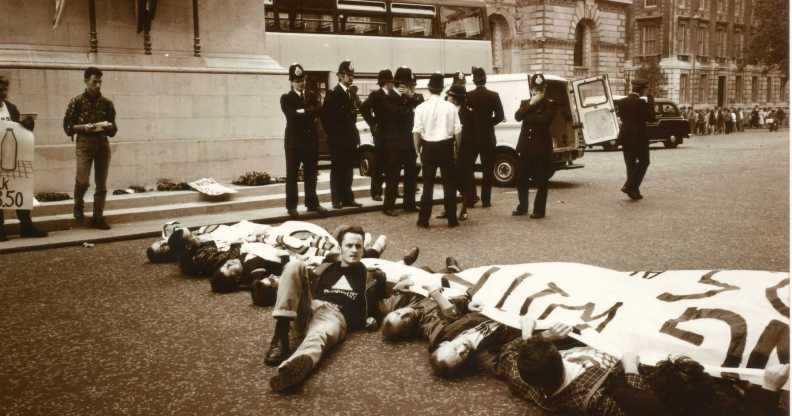
Activist and journalist Paul Burston opens up about the impact coming of age during the AIDS epidemic had on him. (Supplied)
Paul Burston was a young gay man finding his way when the AIDS epidemic hit. As he releases his memoir, he tells PinkNews how activism saved him – and how history is being rewritten.
Early adulthood should be a time for exploration – but for an entire generation of queer people, those formative years were marred by the arrival of a mystery virus that was killing perfectly healthy people.
“We used to make sort of black, humorous jokes about it – we were in denial,” Paul Burston, the trailblazing activist and journalist, tells PinkNews.
“I can remember people literally saying: ‘Don’t sleep with Americans.’ That was the notion of safer sex.”
At the time, Paul was a young gay man from Wales who had arrived in London with dreams of finding others like him. He found them – but it wasn’t long before they started getting sick.
Decades later, Paul still bears the scars of coming of age in the shadow of AIDS.
He says it wasn’t until 1989, when his friend Vaughan was diagnosed with HIV, that the severity of the situation fully dawned on him. Vaughan died a year later, in 1990. Paul was just 23 years old – he was bereft, and he was terrified he would meet a similar fate.
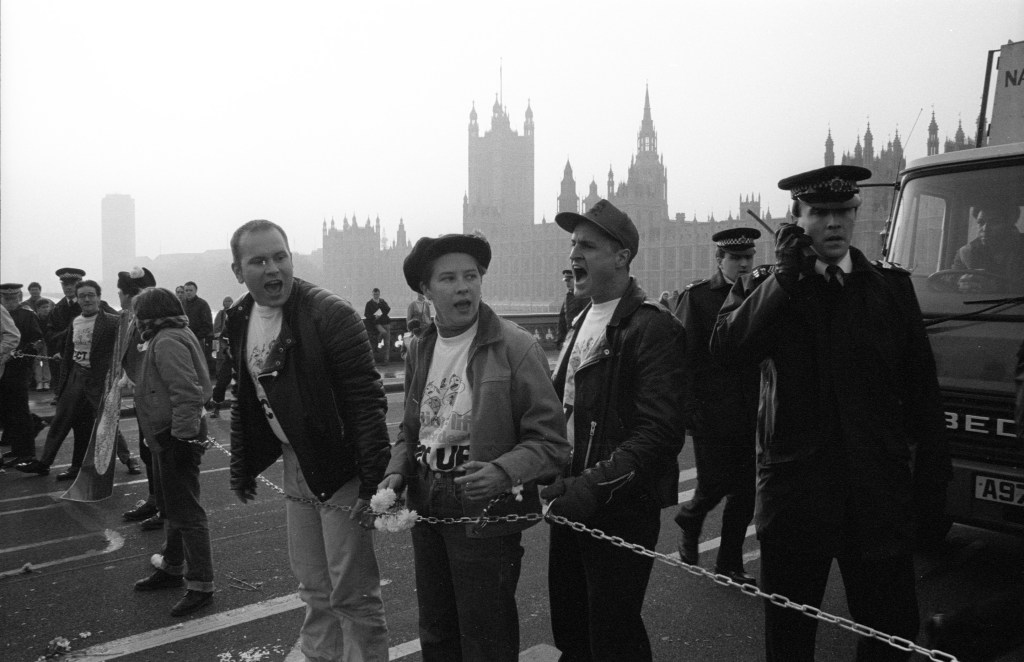
“I became much, much more obsessed about any risk of infection. It was a completely irrational response but looking back, it was because I was dealing with a huge amount of stress around sex.”
The gay scene was in a state of disarray over the arrival of AIDS. A spirit of activism collided with a desire from some to ignore what was going on.
“Drag queens did so much fundraising. People like Lily Savage and Regina Fong, they did so much to raise money to help people with HIV and AIDS and to help set up charities,” Paul says.
“At the same time the scene as I remembered it then – and I think it’s probably true to some extent now – was very obsessed with youth and beauty and AIDS was a very ageing disease. People who I was friends with were very young, in their mid-20s and in many cases very beautiful men, but once they got sick they lost their looks and became quite visibly ill. They were shunned – they were treated as pariahs on the scene.”
He recalls one particular incident that shook him to his core.
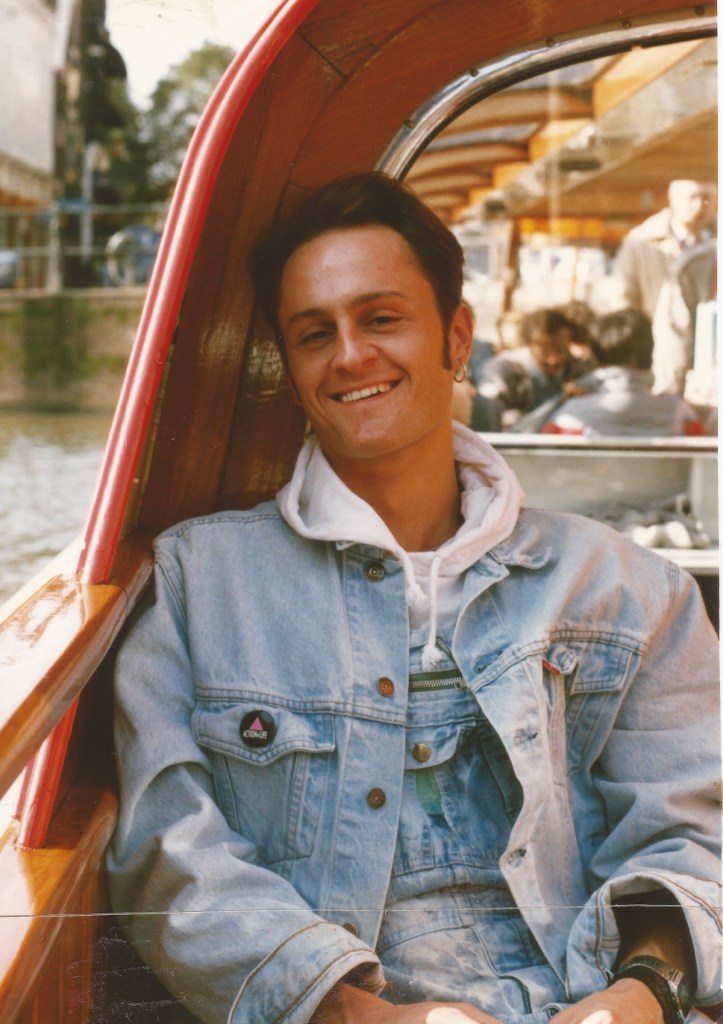
“I was with one particular friend who was very dear to me and we went to [the gay bar] Compton’s. He was a very handsome man, he’d been ill in hospital and he hadn’t left his flat in weeks, and I dragged him to Compton’s because he loved going there before he got ill.
“And somebody came over to him and said, ‘What happened to you? You used to be so handsome.’ He was devastated. I wanted to punch the person who said that. I was so angry.”
AIDS activism saved Paul Burston’s life
Paul was furious with the world around him, but activism provided the lifeline he desperately needed. He got involved with ACT UP (AIDS Coalition to Unleash Power) once it arrived in London, and he was at the very first meeting.
“If I hadn’t joined ACT UP and become an activist, I probably wouldn’t be here now,” he says.
Paul cared deeply about ACT UP, but that doesn’t mean everyone else did. He recalls the horrified response from some when they went into pubs asking for donations.
“They would give us a good telling off and be very antagonistic – telling us all the things we were doing wrong and being very disapproving. It’s funny how the history books are being rewritten to a degree and people write about ACT UP now as if it was welcomed and embraced by the community, and that wasn’t the case. Even the gay press was sometimes quite hostile to us.”
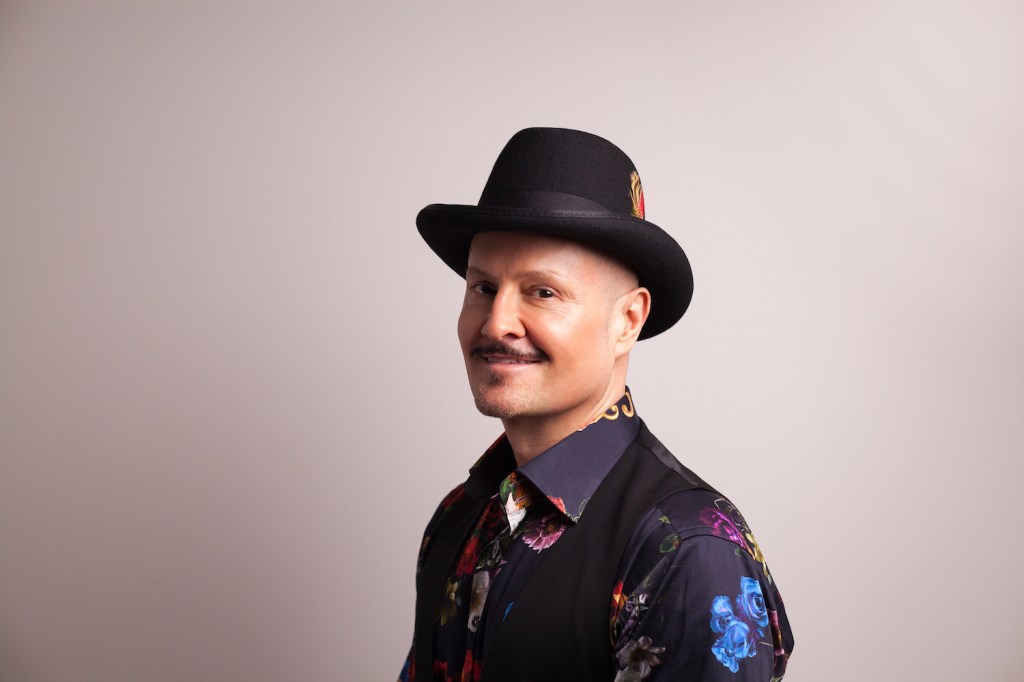
On the outside, Paul was thriving, but he was secretly suffering. The weight of losing friends to AIDS and living in a profoundly homophobic society was affecting him. He turned to drugs and alcohol as a coping mechanism.
“I would go out and I would get really hammered with drugs and alcohol and then I would have sex with people that often wasn’t safe, and then I would be full of self-loathing and full of shame and hate myself and be paranoid – but I wouldn’t get tested.
“For a long time I worked on the assumption that I probably was positive.”
Certain drugs like ecstasy were huge on the queer scene in the ’90s. Paul believes it was, at least in part, a response to trauma – an effort to blot out the everyday anxieties of living through an epidemic.
“Ecstasy had arrived in a big way and I believe very strongly that that was not a coincidence. I believe very strongly that ecstasy took off the way it did in the gay scene in the early ‘90s as a direct response to this period of grief and trauma that many of us had lived through.”
As his journalism career took off (Paul was Time Out’s LGBT editor for two decades), cocaine became his drug of choice.
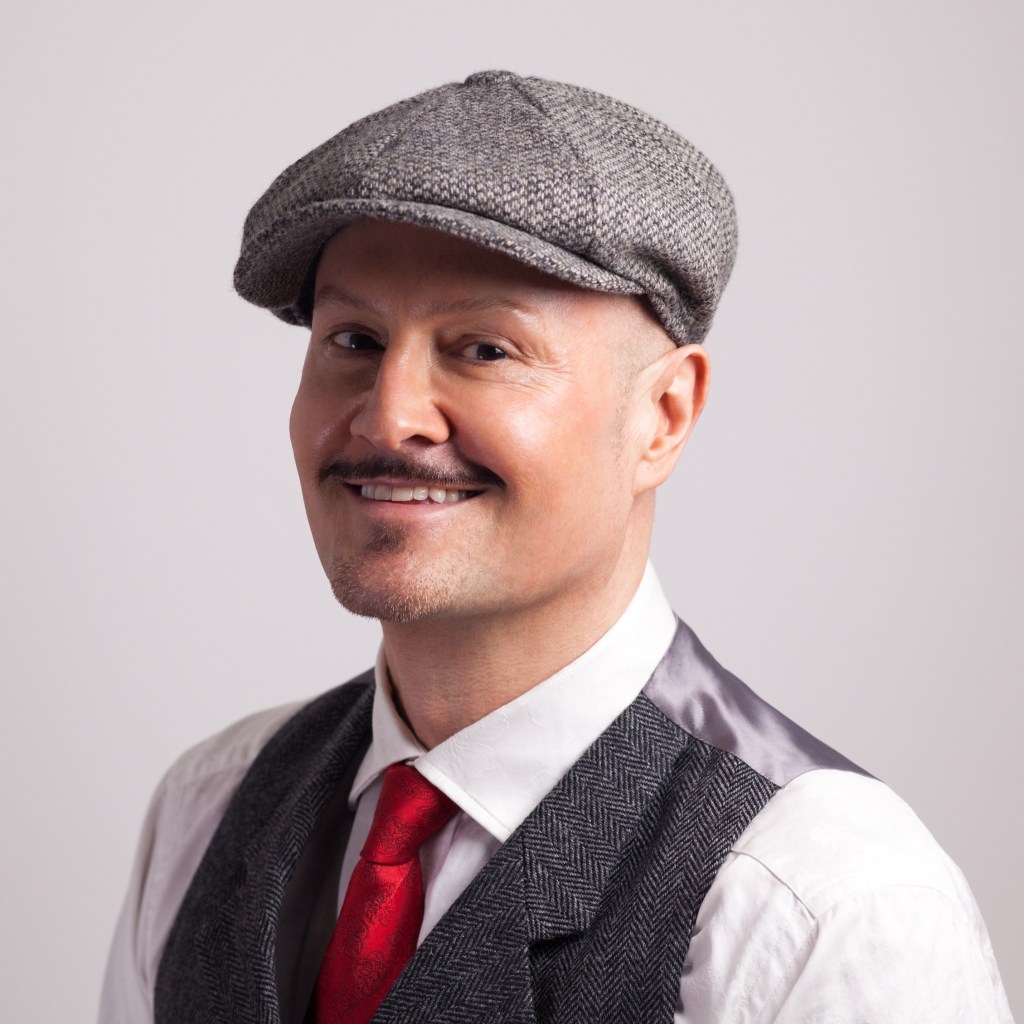
“That’s one of my biggest regrets – the amount of time and money I wasted on that drug, but at the time I do think the desire to self-medicate came from a direct response from living through that trauma. When I finally did go to therapy, which was many years later, my therapist told me quite clearly, ‘Well clearly you were suffering from PTSD.’
“Nobody talked to me in those days about survivors’ guilt – that wasn’t a term we talked about.”
Today, Paul is drugs free and the worst days of the AIDS epidemic have faded into the past. The dawn of effective treatment in the ‘90s changed the game, and people with HIV can now live long, healthy lives.
Paul has reckoned with his trauma and he’s come out the other side. He’s learned the hard way how important it is to speak up when you’re suffering – to find someone who will listen.
“I wish I could tell the younger me, go and get the help you need rather than try to deal with it on your own … it’s a much better way to go through life being open about your emotions.”
Paul Burston’s memoir We Can Be Heroes is published by Little A and is available from 1 June.
To learn more about HIV and AIDS research, testing and treatment, visit amFAR or the Terrence Higgins Trust.

